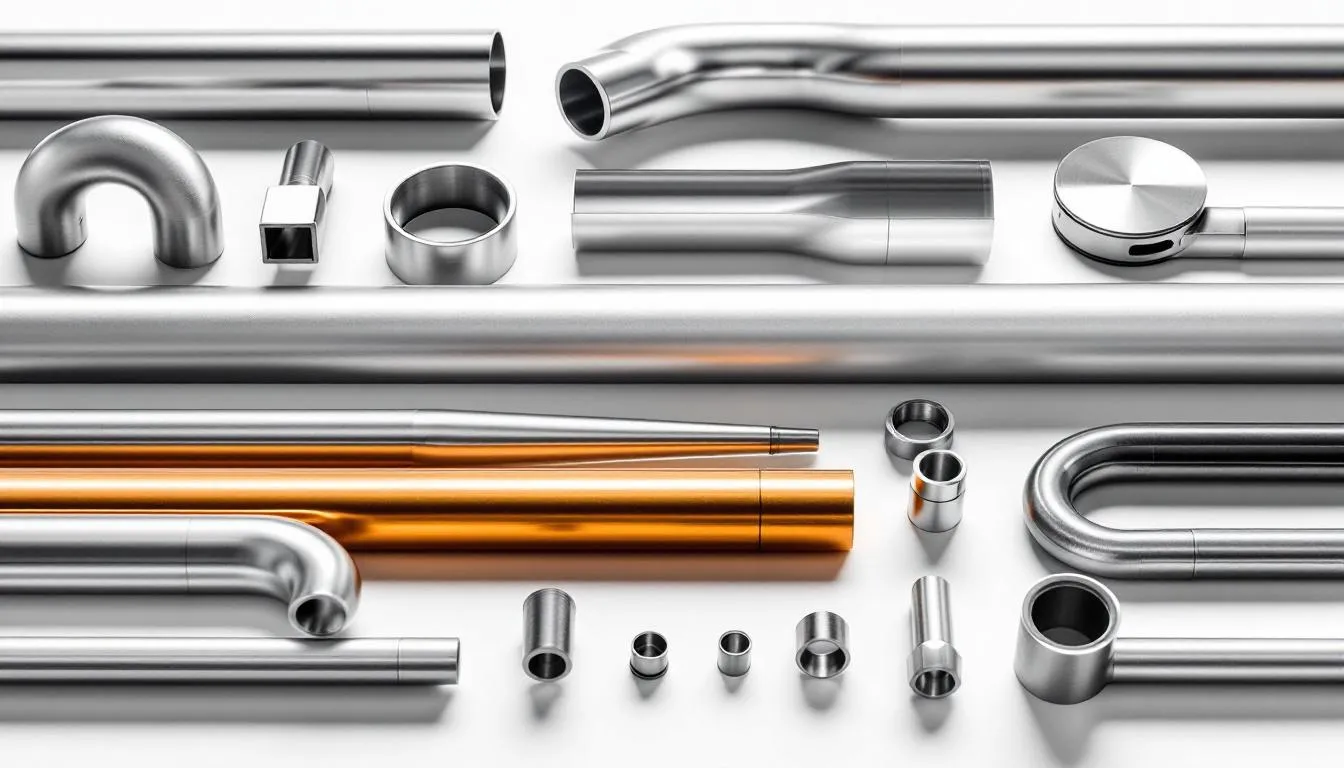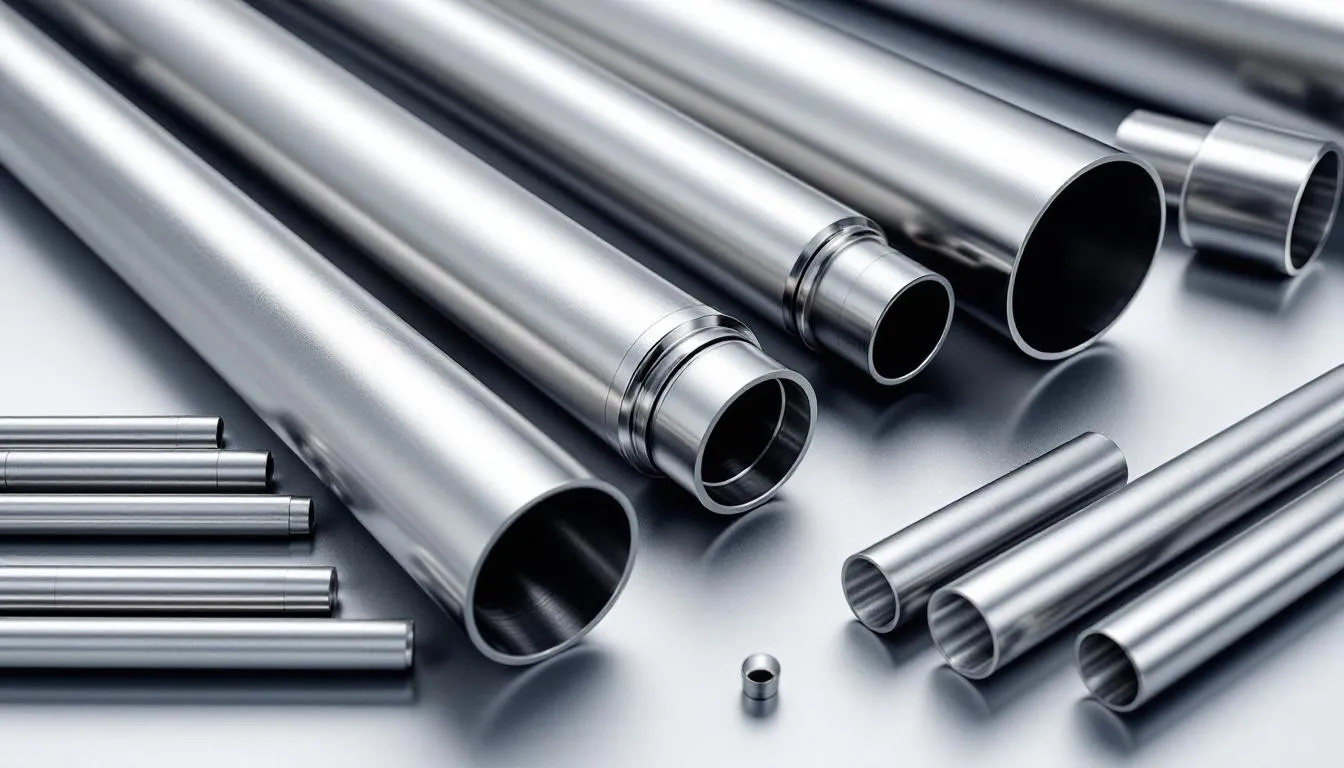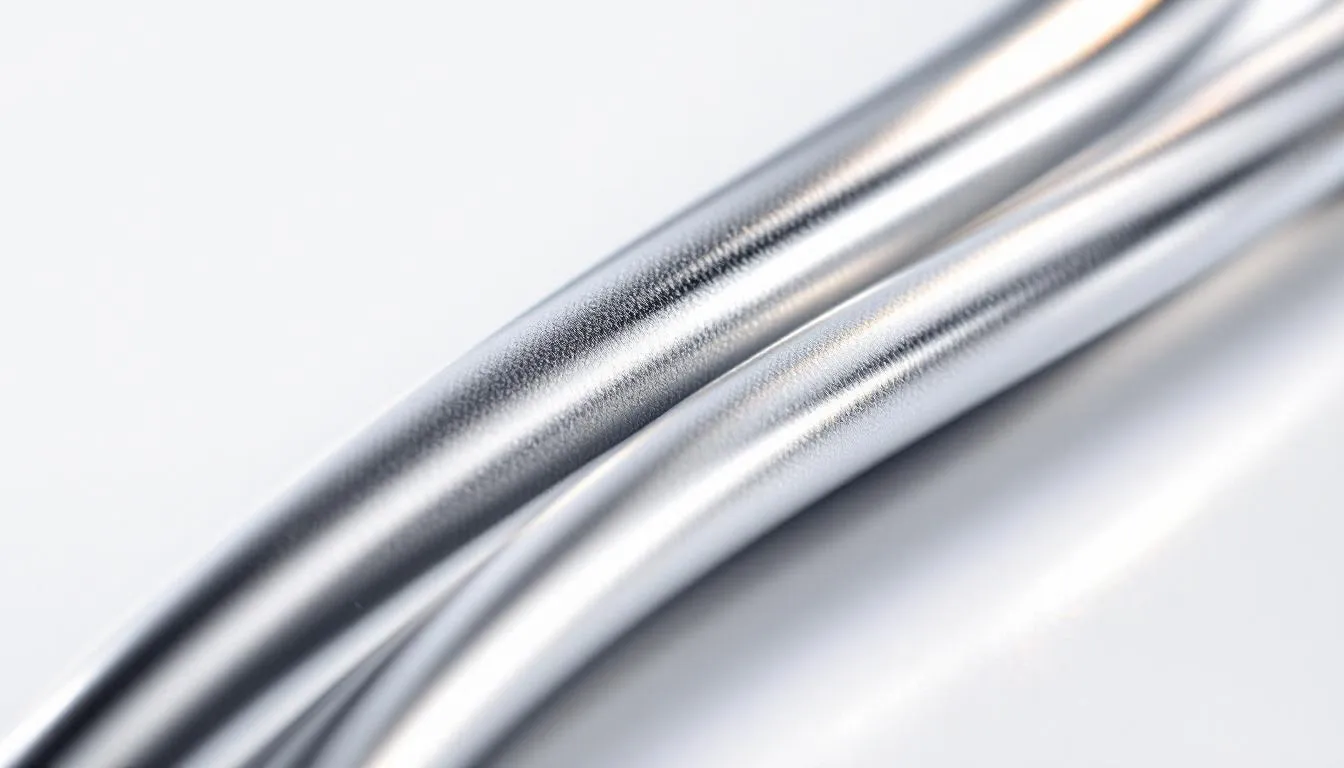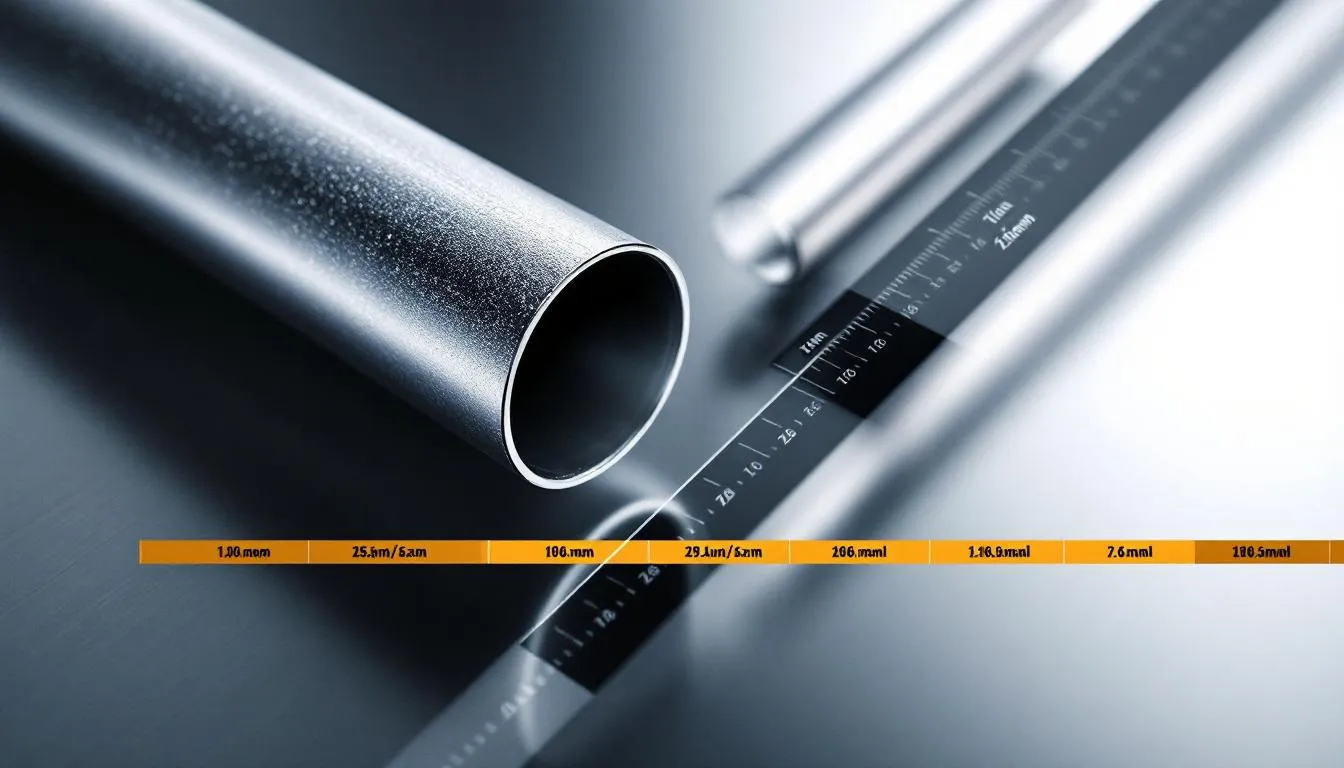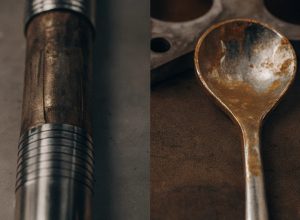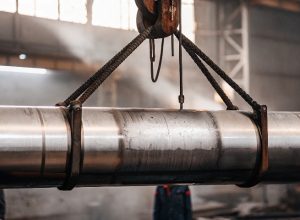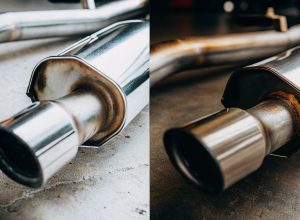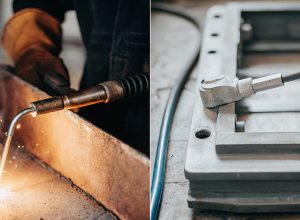Ever wondered why titanium tubing is crucial in aerospace, medical, and industrial applications? Titanium tubing is prized for its exceptional strength, lightweight, and excellent resistance to corrosion. This guide explores the various grades, applications, and benefits of titanium tubing. Dive in to learn why it stands out as a top material in demanding environments.
Key Takeaways
-
Titanium tubing offers exceptional strength-to-weight ratio, corrosion resistance, and biocompatibility, making it ideal for high-performance applications across aerospace, medical, and marine industries.
-
Selecting the appropriate grade of titanium tubing, such as Grade 2 for versatility or Grade 9 for high strength, optimizes performance in specific applications.
-
Titanium tubing, while initially more expensive than alternatives like stainless steel and aluminum, provides long-term cost savings due to its durability, low maintenance requirements, and reduced total ownership costs.
Understanding Titanium Tubing
Titanium tubing is celebrated for its extraordinary combination of high strength, lightweight nature, and excellent corrosion resistance. Unlike many metals, titanium is non-magnetic, making it an ideal choice for applications sensitive to magnetic interference. Quality control measures mandated by ASTM B338 ensure that titanium tubes meet stringent requirements, providing reliability and consistency across all applications.
What sets titanium apart from materials like steel and aluminum is its superior strength-to-weight ratio. This makes it particularly valuable in industries where performance and weight are critical factors. At Shaanxi Titonest Metal, our aerospace and medical sector clients consistently prioritize titanium for its unmatched durability and biocompatibility.
Understanding the fundamental properties of titanium tubing highlights why it is the material of choice for high-performance applications. Its unique characteristics not only enhance functionality but also ensure longevity and reliability in the most demanding environments.
Common Grades of Titanium Tubing
Choosing the right titanium grade optimizes performance in specific applications. The standard specifies chemical compositions for various titanium grades, including both unalloyed and alloyed types. Each grade offers distinct properties that cater to different needs.
Grade 2 titanium, for example, is known for its excellent ductility and good weldability, making it suitable for applications like heat exchangers. On the other hand, Grade 9, with its high strength and low weight, is frequently utilized in aerospace for critical components. Industry leaders like Boeing have praised Grade 9 for its unmatched performance in structural applications. The wide range of properties and applications available within titanium grades—especially the versatility of Grade 9—makes it suitable for a broad spectrum of uses across aerospace, medical, and marine industries.
Knowing these grades aids in choosing the suitable titanium tubing for your requirements. Whether you need the versatility of Grade 2 or the strength of Grade 9, understanding each grade’s attributes ensures optimal performance.
Applications of Titanium Tubing
The applications of titanium tubing are as diverse as the industries it serves. In the aerospace sector, Grades 1 and 2 titanium are prized for their exceptional corrosion resistance and moderate strength, making them ideal for hydraulic tubing systems and fuel lines. Grade 9 and Grade 12, with their high strength and fatigue properties, are extensively used in critical structural components.
Marine applications also heavily rely on titanium tubing. Its use in shipbuilding and subsea operations, particularly on oil rigs, underscores its reliability under extreme saltwater conditions. Our clients in offshore engineering, especially in Brazil and Norway, favor titanium for its durability and minimal maintenance requirements.
In the automotive sector, titanium tubing is a key component in exhaust tubing systems and high-performance engine parts. Its lightweight nature contributes to better fuel efficiency and enhanced vehicle performance. Moreover, titanium’s biocompatibility makes it ideal for medical devices, including surgical instruments and orthopedic implants.
The chemical processing industry benefits significantly from titanium tubing in heat exchangers and piping systems. Its resistance to corrosion ensures longevity and reliability, making it a preferred choice for handling aggressive chemicals.
Corrosion Resistance and Durability
Titanium’s exceptional corrosion resistance is a cornerstone of its appeal. The natural oxide layer that forms on titanium surfaces shields it from harsh environments, preventing degradation. This inherent protection makes titanium tubing a superior choice in settings where other materials might fail.
Compared to stainless steels, titanium tubing demonstrates enhanced performance in corrosive environments. Applying a protective coating can further enhance its resistance, ensuring longevity even in the most demanding conditions. Research by NACE International highlights titanium as one of the most corrosion-resistant materials for industrial applications—a fact our chemical processing clients rely on.
This durability translates into long-term cost savings and reliability. In environments where strength and resistance to corrosion are paramount, titanium tubing stands out as the material of choice, providing a robust and enduring solution.
Fabrication and Welding of Titanium Tubing
Fabricators and welding titanium tubing requires specialized techniques to maintain its integrity:
-
Use argon as a shielding gas during welding to prevent adverse reactions during the heating process.
-
Ensure proper joint fit-up to reduce heat exposure and prevent contamination.
-
These practices help ensure strong and reliable connections.
Grade 9 titanium offers a practical way to balance fabrication difficulty, cost, and performance, making it a preferred choice for many fabricators.
Dedicated tools for titanium work are essential to avoid cross-contamination from other metals. Techniques like using a gas lens can enhance shielding gas coverage, improving the welding process and protecting the weld area.
Our certified welders at the Baoji facility use inert gas chambers and proprietary techniques to ensure clean and defect-free welds. These meticulous processes ensure that titanium tubing maintains its high performance and durability, making it suitable for critical applications where reliability is non-negotiable.
Comparing Titanium Tubing with Other Materials
When compared to other materials like aluminum and stainless steel, titanium tubing offers several advantages. Its lower density and comparable strength levels make it a preferred choice in applications where weight reduction is critical, such as aerospace.
Titanium’s corrosion resistance outperforms that of stainless steels like grade 304 and 316, particularly in harsh environments like saltwater. The tensile strength of titanium alloys can surpass many stainless steel grades, providing enhanced structural integrity.
While titanium may be more expensive initially, its long lifespan and reduced need for maintenance make it a cost-effective choice in the long run. Lifecycle cost analysis from leading marine contractors shows that titanium tubing can reduce total ownership costs by up to 40% compared to stainless steel. This makes titanium a valuable investment for applications requiring minimal maintenance and maximum durability.
Ordering and Sourcing Titanium Tubing
Ordering and sourcing titanium tubing involves identifying the appropriate grade for specific applications. Engaging with reputable suppliers ensures access to high-quality titanium tubes and enhances the order procurement experience.
The reputation and experience of a manufacturer in the titanium industry are key to ensuring reliable products. Shaanxi Titonest Metal’s vertically integrated model—owning smelting and machining—offers clients consistent quality and faster delivery timelines.
Partnering with experienced suppliers and manufacturers guarantees high-quality titanium tubing that ensures a strong connection to meet stringent application requirements.
Technical Specifications and Standards
Compliance with technical specifications and industry standards like ASTM and ASME ensures the quality and functionality of titanium tubing. These standards are vital for ensuring performance and safety across various industries.
Our customers in the EU and USA emphasize ASTM B338 and ASME SB-861 compliance as a precondition for qualifying suppliers. These standards ensure that the titanium tubing meets the necessary quality benchmarks, providing reliability and consistency across all applications.
Custom Manufacturing Options
Custom manufacturing options for titanium tubing allow tailored solutions to meet specific application requirements. Understanding the manufacturing methods, such as seamless extrusion or welding, can help assess the quality of the titanium tubes.
Customization options include different tubing types, sizes, and material grades to comply with project specifications. Shaanxi Titonest Metal provides tailored titanium tubing solutions that can be customized for specific applications, including seamless and welded options.
Our aerospace clients often require dimensional tolerances tighter than ±0.1mm, standards our in-house machining center routinely meets. This emphasis on quality control enhances the overall reliability of custom products, ensuring they meet the specific needs of various industries.
Maintenance and Care Tips
Regular maintenance maximizes the lifespan and performance of titanium tubing. Using a mild detergent solution and a soft cloth is recommended for routine cleaning of titanium surfaces.
Our recommended maintenance protocols have reduced maintenance costs by up to 25% for clients in the medical device sector. Regular maintenance ensures that titanium tubing remains in optimal condition, providing reliable performance over its lifespan.
Summary
In conclusion, titanium tubing stands out in various industries due to its high strength, lightweight properties, and exceptional corrosion resistance. Understanding the different grades, their applications, and the importance of proper fabrication and welding techniques can help you make informed decisions.
Choosing top-quality titanium tubing ensures reliability, durability, and long-term cost savings, making it a valuable investment for high-performance applications. By partnering with reputable suppliers and manufacturers, you can be confident in the quality and performance of your titanium tubing.
Frequently Asked Questions
What are the common grades of titanium tubing?
The common grades of titanium tubing include Grade 2, which is valued for its ductility and weldability, and Grade 9, known for its high strength-to-weight ratio. Understanding these properties is essential for selecting the appropriate grade for specific applications.
Why is titanium tubing preferred over other materials?
Titanium tubing is favored due to its high strength-to-weight ratio and excellent corrosion resistance, making it superior to materials such as steel and aluminum. These properties enhance performance in demanding applications.
What are the typical applications of titanium tubing?
Titanium tubing is primarily utilized in aerospace, marine, automotive, medical, and chemical processing industries for hydraulic systems, fuel lines, exhaust systems, and heat exchangers. Its versatility and resistance to corrosion make it an ideal choice for these applications.
How does titanium tubing compare to stainless steel?
Titanium tubing outperforms stainless steel in corrosion resistance, is lighter, and maintains similar strength levels, making it a more cost-effective and low-maintenance option.
What should be considered when ordering titanium tubing?
When ordering titanium tubing, it is crucial to select the appropriate grade for your application, choose reputable suppliers, and ensure compliance with industry standards such as ASTM and ASME. These factors will significantly impact the performance and reliability of the tubing.

